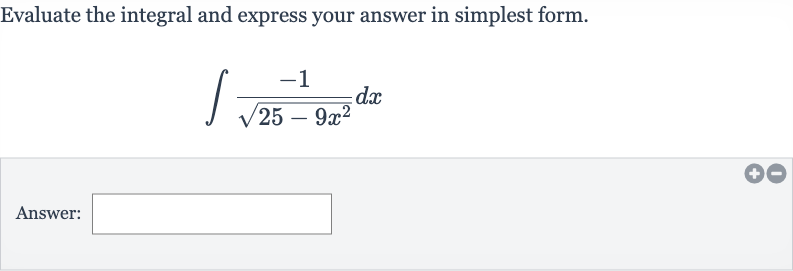Full solution
Q. Evaluate the integral and express your answer in simplest form.Answer:
- Given Integral: We are given the integral: To solve this integral, we can use a trigonometric substitution. Let's choose , because the expression resembles a Pythagorean identity when is expressed in terms of sine.
- Trigonometric Substitution: Differentiate with respect to to find :
- Differentiate : Substitute and into the integral:Simplify the expression inside the square root:
- Substitute and : Recognize that is equal to by the Pythagorean identity:Now, substitute this back into the integral:
- Simplify Expression: Simplify the integral by taking the square root of , which is :The terms cancel out, and we are left with:
- Recognize Identity: Integrate with respect to :
- Simplify Integral: Now we need to express back in terms of . Since , we can solve for using the inverse sine function:Substitute back into the integral result:

